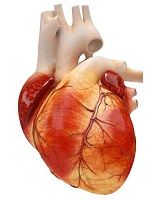Allergic Reactions End Anti-Clotting Drug's Trial
A trial of an anti-clotting therapy that might have given physicians a way to turn on and turn off the blood's tendency to clot had to be halted because some patients had severe allergic reactions, researchers reported. Now they are focusing on why that happened in hopes of reviving the work.

Researchers at Mount Sinai Hospital in New York City were forced to stop a Phase III trial of a novel anti-clotting therapy after the drug system -- known as REG1 (Regado Biosciences) -- caused 1 death and 9 serious adverse events, all from allergic reactions.
Reporting at the 2015 American College of Cardiology meeting in San Diego, CA, lead researcher Roxana Mehran, MD, director of Interventional Cardiovascular Research and Clinical Trials at Mount Sinai Heart, said the team is now focused on finding the cause of the reactions, in hopes of continuing the original research.
The Phase III trial was to determine whether the REG1 anticoagulation system would work better than bivalirudin, a commonly used anticoagulant in patients undergoing angioplasty. REG1 is a drug combination that consists of an RNA aptamer of clotting factor IXa called pegnivacogin. It binds to that molecule for 24 hours but can be reversed by the second agent in REG1, anivamersen, which inactivates the pegnivacogin.
“This is our holy grail,” Mehran said, "finding a rapid, predictable antithrombotic that we can stop at the end of PCI, paired with a control agent to reverse it immediately.”
The trial was started in September, 2013 and stopped in June, 2014 because of the serious allergic reactions. There had been some allergic reactions in the drug’s phase II trial, so the Data Safety and Monitoring Board was closely monitoring safety. The trial was permanently halted in August, 2014.
Before it was stopped, 3,232 patients undergoing angioplasty were enrolled at 225 hospitals in 17 countries. The goal was to enroll 13,200 patients.
Results at the point the trial was halted were not promising, though Mehran said they should be considered “exploratory” and not definitive.
Patients receiving REG1 had a 0.4% rate of severe or fatal bleeding compared to 0.1% with patien3ts given bivalirudin for anticoagulation.
Moderate to severe bleeding was significantly higher in the REG1 group.
The trial was funded by the drug manufacturer. Mehran serves on its scientific advisory board.